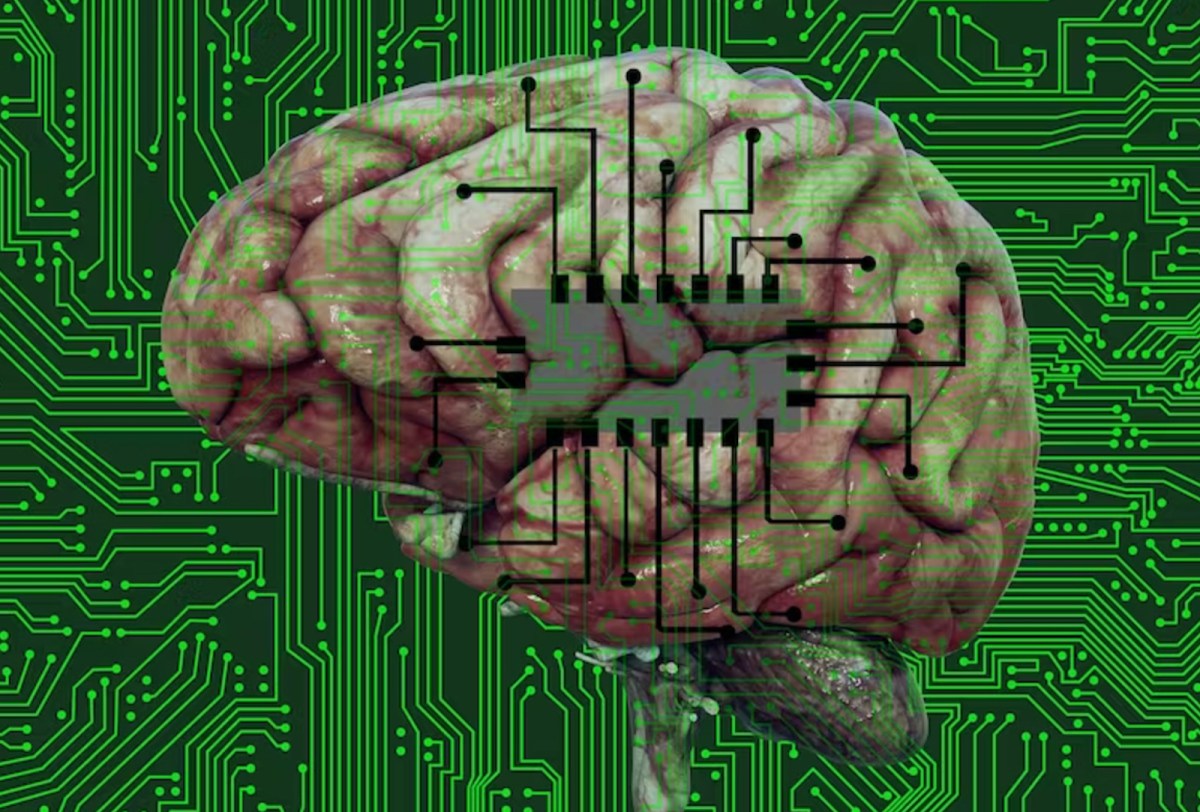Global Courant 2023-05-30 15:55:37
Since its founding in 2016, Elon Musk’s neurotechnology company Neuralink has been ambitious mission to build at least a next generation brain implant 100 times more brain connections than devices currently approved by the US Food and Drug Administration (FDA).
The company has now reached an important milestone in receiving FDA approval to start human trials. So what were the problems with keeping the technology in the preclinical trial phase for so long? And have these concerns been resolved?
What is Neulink?
Neuralink creates a Class III medical device known as a brain-computer interface (BCI). The device connects the brain to a remote computer via a Bluetooth signal, enabling continuous back and forth communication.
The device itself is a coin-sized unit called a Link. Are implanted into a small disc-shaped recess in the skull using a precision surgical robot. The robot splices a thousand tiny wires from the Link to certain neurons in the brain. Each strand is about a quarter the diameter of a human hair.
Potential Benefits
If Neuralink’s BCI can be made to work safely on humans, I believe the potential benefits would be worth it.
The company says the device allows for precise control of prosthetic limbs, giving amputees natural motor skills. It could revolutionize the treatment of conditions such as Parkinson’s disease, epilepsy and spinal cord injuries. It also shows some promise for potential therapy of obesity, autism, depression, and schizophrenia tinnitus.
Multiple other neurotechnology companies and researchers have already developed BCI technologies that have helped people with limited mobility get moving again And completely daily tasks.
BCIs have also been used to help elderly train their motor and cognitive skills to mitigate the worst effects of aging.
The long road to FDA approval for human trials
In February 2021Musk said Neuralink was working with the FDA to get approval to begin the first human trials later that year. But human trials didn’t start in 2021.
Then, in March 2022, Neuralink made a further application to the FDA to determine its readiness to begin human trials.
Elon Musk has a brain chip dream. Photo: AFP/Brendan Smialowski
One year and three months later, on May 25, 2023, Neuralink finally received FDA approval approval for its first human clinical trial. Given how hard Neuralink has pushed for permission to begin, we can assume it will begin very soon.
The approval comes less than six months after the U.S. office of the Inspector General launched an investigation to Neuralink about possible animal welfare violations.
What were the FDA’s concerns?
The FDA had quite a list of issues that needed to be resolved before human trials could begin, as reported in a Reuters investigationwho claimed to have spoken to several Neuralink sources.
Most of these concerns required Neuralink to conduct thorough and repeated testing and data collection over an extended period of time. This was likely a deciding factor in why the approval process to begin human testing took so long.
It cannot be said with certainty that all problems have been completely solved. But given the rigor of the FDA’s approval process, we would conclude that they have been resolved at least to a point of satisfaction for the FDA.
Safe operation
A precision robot called Implant/r1 performs the surgical procedure to implant the Neuralink BCI. This robot surgeon had to go through it to fit to gather evidence that it can reliably and safely implant and remove the Neuralink BCI without damaging surrounding brain tissue or creating the risk of infection, bleeding, inflammation or scarring.
Harmful side effects
Once implanted, the Neuralink BCI should work as intended. It must not inadvertently affect other brain functions or cause unwanted effects side effects such as seizures, headaches, mood changes or cognitive impairment.
Safe power supply
In particular, overheating lithium-ion batteries can pose a major risk to BCI users. Such batteries have traditionally been known to fail overheat. They can even explode if the insulation between the cathode and anode (the metal electrode components) breaks down, causing a short circuit.
Consideration was also given to battery life and how easy it would be to replace it safely from the position under the skin behind the ear. There has been extensive testing since the earlier FDA rejection executed on the specially designed Neuralink battery to evaluate performance, durability and biocompatibility.
Wire migration
Then there’s the risk of it wire migration. The Link consists of a disk-shaped chip with very thin wire electrodes that connect to neurons in the brain.
Connecting these wires by means of a surgical robot is a major challenge in itself. But there’s also the possibility that the electrodes could move elsewhere in the brain over time due to natural movement, inflammation, or scar tissue formation. This would likely affect the proper functioning of the device and could cause infection or damage to the brain tissue.
Neuralink had to conduct extensive animal studies and provide evidence that the wires did not migrate significantly or cause adverse effects on the brain over time. The company also had to demonstrate that it had a method of tracking and adjusting the position of the wires if necessary.
Remove implant
Another challenge Neuralink faced was that of safe implantation removal. The FDA wanted to know how easy or difficult it would be to remove the device from the brain if necessary.
Data Privacy and Security
Strong guarantees are necessary to prevent the data collected by the Link from being hacked, manipulated or otherwise misused. Neuralink should have assured the FDA that it could avoid hacker nightmare scenarios that would leave its Link users vulnerable to interference, and ensure the privacy of brainwave data generated by the device.
The way forward
Critics recognize the potential benefits of Neuralink, but warn the company to rush slowly. Appropriately addressing these issues will take time – and no cuts should be made to get to a solution.
In addition to the Link’s potential medical applications, Musk has made many radical claims about his future vision for the technology.
Musk says Neuralink will increase human intelligence. Image: Twitter
He has claimed that Neuralink could augment human intelligence by establishing an on-demand connection to artificial intelligence systems, enabling, for example, enhanced cognition through enhanced memory, learning and problem-solving skills.
He has even gone so far as to say that the Link enables high bandwidth telepathic communication between two or more people connected through a mediating computer. Common sense would suggest placing these claims in the “I believe it when I see it” category.
The situation with Neuralink has clear parallels with current developments in AI (and the growing need to regulate it). As exciting as these technologies are, they should not be released to the public until proven to be safe. This can only be achieved through extensive testing.
David Tuffel is a senior lecturer in applied ethics and cybersecurity, Griffith University
This article has been republished from The conversation under a Creative Commons license. Read the original article.
Similar:
Loading…








